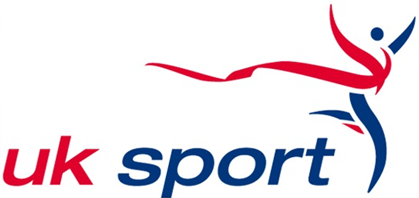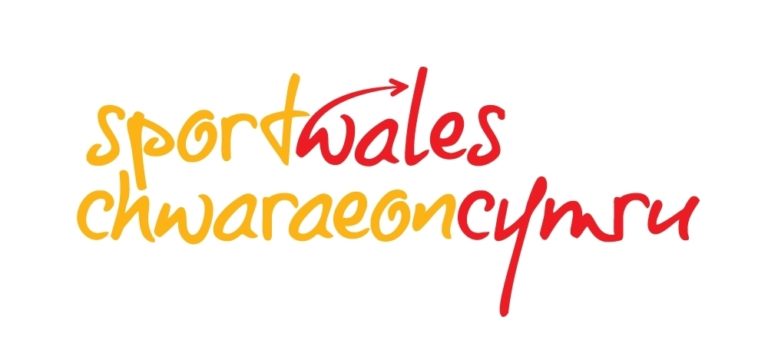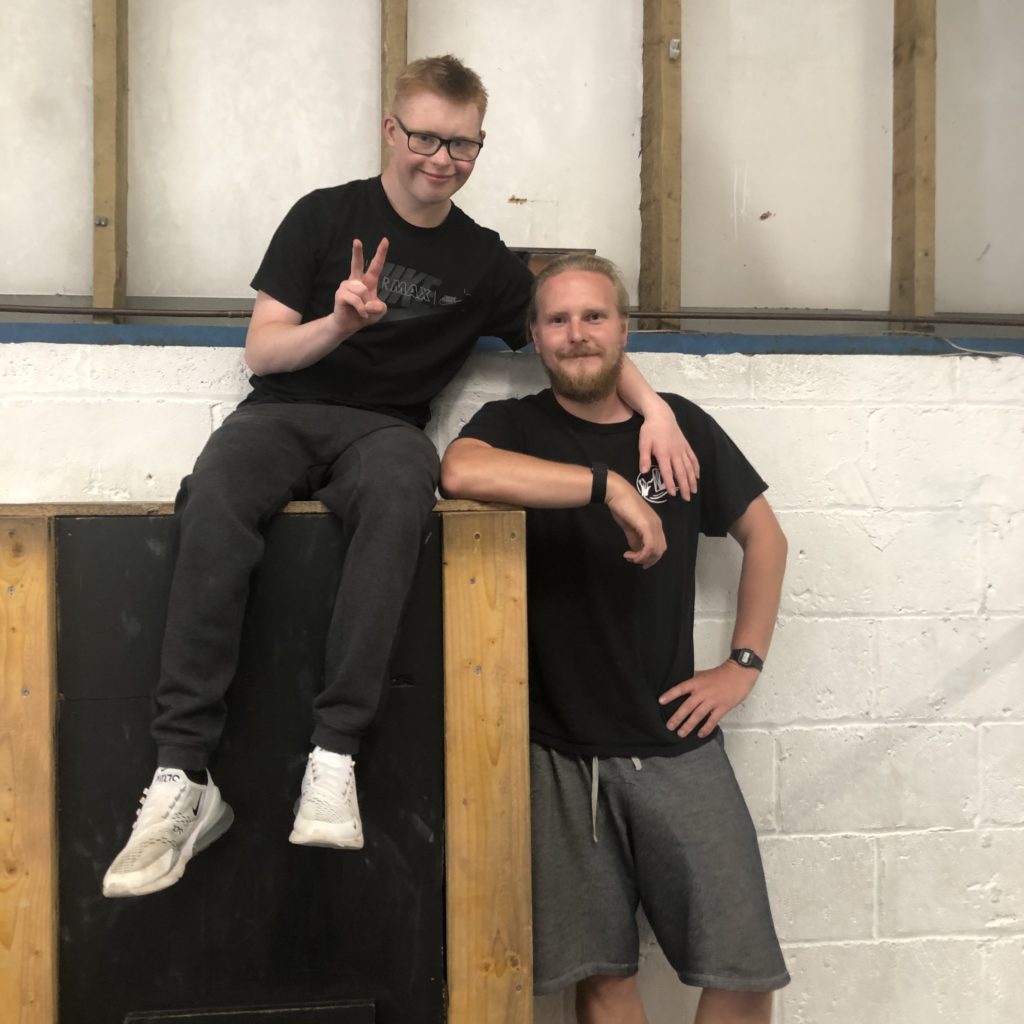
Matthew, a sports-loving teenager is discovering the new-found freedom and confidence-boosting benefits of Parkour.
In many ways Matthew is a typical sports-mad teenager. Fiercely competitive, the 16-year-old from Edinburgh loves football, basketball, swimming and athletics. He’s sensitive, stubborn, cheeky and has a good sense of humour.
He likes being active and enjoys spending time with his close-knit family, including their one-year-old Labrador, and his circle of friends.
Matthew has Downs Syndrome, so faces various physical and learning challenges due to his condition. He needs additional educational support and attends a school for youngsters with learning difficulties.
I think the fact that Parkour revolves around bodyweight exercises or movements benefits him massively. What he is learning and mastering is important for day-to-day life and is giving him the confidence to do things like go to the park and play.
He has obsessive compulsive disorder, which was heightened during the disruption of lockdown, but thrives on structure and routine. In addition, he suffers from noise sensitivity (hyperacusis), finding everyday sounds intrusively loud and distressing, so will often wear ear defenders in busy, noisy environments.
Although Matthew likes to try different activities and sports, he tires easily and has a limited range of movement. He also takes a while to relax in new environments and with people he doesn’t know well.
Disliking unpredictability and lack of control, Matthew won’t play sport as part of a team. So his mum, Angela, is always keen to find a new activities to keep him entertained while developing his physical abilities and skills.
A few years ago, Matthew discovered Parkour on YouTube and began watching videos of people practising freerunning. He became fascinated by the sport, focusing as it does onfinding creative ways to overcome obstacles and moving safely in an unsafe environment.
“At its core, Parkour is about overcoming obstacles with a flexible but focused ‘can do’ attitude. It aims to build confidence, determination, discipline and self-reliance, along with strength, fitness, balance and coordination.”
Seeing Matthew’s interest, Angela contacted Access Parkour – which runs Parkour and movement classes in Edinburgh and across Scotland – to see if they could offer some tailored training for her son.
Four years ago, Access Parkour coach Adam Romaine started working with Matthew at one-to-one weekly classes in their Edinburgh gym, Room To Move – and the enthusiastic teenager has gone from strength to strength.
Adam began with short 30-minute sessions and has slowly built them up to 45 minutes, as Matthews’s fitness and stamina have increased.
After lockdown forced the suspension of such activities, Matthew was desperate to resume his training so, when restrictions allowed, Adam continued the sessions with him outdoors – outside the Scottish Parliament building.
Initially, Adam introduced him to safe ways of jumping, climbing and landing. Over time, Matthew’s movement journey has comprised jumping, forward vaults, wall technique, swinging and underbars, crawling, turning vaults, balance and ascending vaults.
“It has been fantastic to see Matthew progress with Parkour. He is learning and improving all the time, while having fun…”
Adam’s success with Matthew has revolved around understanding the need to progress gradually from slow, simple movements to more complicated ones. For example, jumping started with the floor to a step, graduating to the floor to a box, then a box to another box.
Similarly, vaulting moved from a low-level box to a bar, then to an elevated bar – but still ensuring Matthew had something to hold onto.
Adam is patient, reassuring and relaxed with Matthew, building his trust and confidence so that he can learn and master increasingly complex and skilful moves and techniques. The key has been breaking everything down into small steps, along with lots of repetition and encouragement.
Crucially, Adam understands Matthew’s personality and his limits so adapts each class to his student’s fluctuating ability, confidence and mood on the day.
Sometimes, progress plateaus while Matthew is psychologically processing what is required to master a technique. For instance, he struggled to grasp the dynamic swing but, following a short break from his weekly classes over Christmas, he returned in January and was able to complete the movement.
Matthew has improved tremendously in terms of his ability and range of movement. He is currently working on perfecting his climbing techniques, low-level balancing and using bars to swing from one object to another.
Adam explains: “Sometimes Matthew has a mental block on something, which can be challenging. I have to figure out if it’s a physical or psychological barrier we’re facing – whether, rather than not being able to do something, he is just scared or worried about it. Then I have to work out how we can overcome that.
“But, the longer we have worked together, the more Matthew trusts me and he has progressed amazingly. Now, he’s usually up for trying anything unless it is particularly scary or a bit too different from what he’s used to. He’s come on in leaps and bounds in confidence and ability.
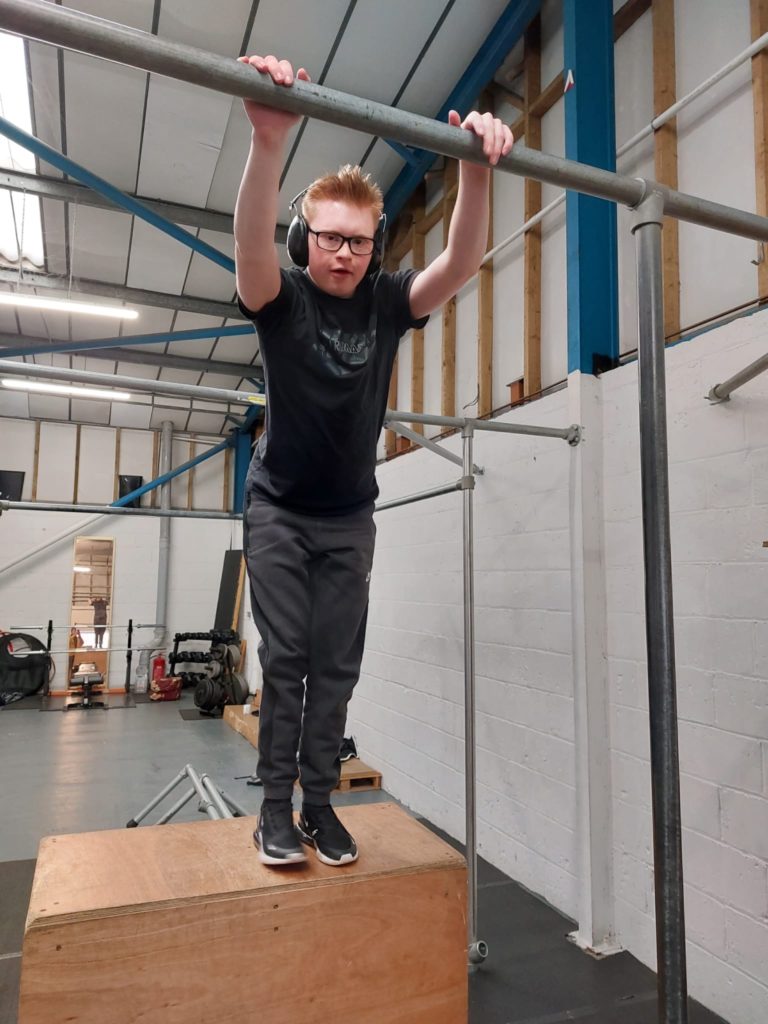
“If something goes well, he feels great. We always finish our session on a high note so he realises how well he’s done and how far he’s progressed. His reward at the end is usually swinging, because he absolutely loves that.
“It has been fantastic to see Matthew progress with Parkour. He is learning and improving all the time, while having fun. He was scared of doing a lot of things when he first started. For example, he would never jump to grab things out of reach, so it was just mind-blowing for me when he did eventually jump and grab a bar.
“I think the fact that Parkour revolves around bodyweight exercises or movements benefits him massively. What he is learning and mastering is important for day-to-day life and is giving him the confidence to do things like go to the park and play.”
Parkour has boosted Matthew’s quality of life, improving not only his strength, fitness, balance and coordination but also his confidence, skills, independence and self-belief. He looks forward to his weekly one-to-one coaching and delights in how it has pushed him to explore a wider spectrum of movement and agility.
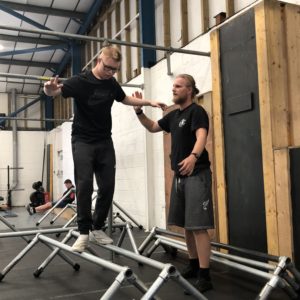
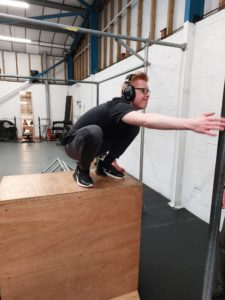
His family have installed monkey bars in their garden, which Matthew loves swinging on, and this has helped him hone this type of movement during his gym visits. As he commented: “I like jumping off the boxes and swinging on the bars!”
Matthew attends the classes with his dad, Gavin, and likes him joining in with what he’s doing at the end of each session. Gavin has watched his progress and observed the close, trusting relationship Adam has built up with his son.
Gavin says: “Matthew would just retreat into himself if he was in a group class, so this one-to-one coaching is ideal. Adam works really well with him, reassuring him that what he’s doing is going to be safe.
“It is great to see how Matthew has made progress, from doing just a basic step when he first started through to now being able to do a step vault up high. We have watched his confidence grow, along with his ability and desire to try new movements.
“Matthew has really taken to Parkour and likes the variety of trying different things. He likes the weekly routine and loves working with Adam. It puts him in a good mood, which is great.Parkour is the one constant activity for Matthew – it’s his ‘thing’ that he likes to tell his family and friends about, especially when he learns and manages new moves.
“It has also made him more confident when we are out and about, like taking a walk in the woods. Before, he would want to hold someone’s hand if he was jumping off a log. Now, he will just go off and do it.
“I think it’s also been good for him to be around people outside his usual social bubble – a
few other people who are usually at the gym at the same time, taking part in different classes. He seems to be better at coping and more comfortable with that now.”
The sessions also appear to have improved Matthew’s ability to cope with everyday noises. When he first started he would always put on his ear defenders, regardless of whether anyone else was in the gym, but now he can cope with the sound of a few other people there and will even take the lead in selecting what background music they should play.
Parkour’s elements of fun, variety and accessibility make it a perfect activity for people with a range of difficulties or disabilities to enjoy, as it can be tailored to fit participants’ specific needs, capabilities and skills.
As well as its capacity to boost physical and mental health, it is a versatile and inclusive sport which can be practised anywhere, either alone or with others. Working with the right coach, it can also be adapted to suit specialised needs, such as a Matthew’s.
At its core, Parkour is about overcoming obstacles with a flexible but focused ‘can do’ attitude. It aims to build confidence, determination, discipline and self-reliance, along with strength, fitness, balance and coordination.
All this lends itself to playing a role in supporting people who have their own personal, physical and emotional challenges to deal with in everyday life.
Jess Cook is Strategic Partnership Advisor at Activity Alliance, the national charity and leading voice for disabled people in sport and activity. She said: “It is great to hear how Adam and Access Parkour have overcome the potential barriers to Matthew discovering this sport.
“Adam’s unique relationship with Matthew is clearly key – he understands his needs and Matthew trusts him. This has allowed Matthew to enjoy Parkour’s wide-ranging benefits, from promoting core strength and balance to encouraging integration, a sense of communityand enjoyment of the great outdoors.”
If you are interested in parkour please follow Parkour UK on Instagram or get in contact with Parkour UK.
You can find out more information about Access Parkour here or search for opportunities near you here.


